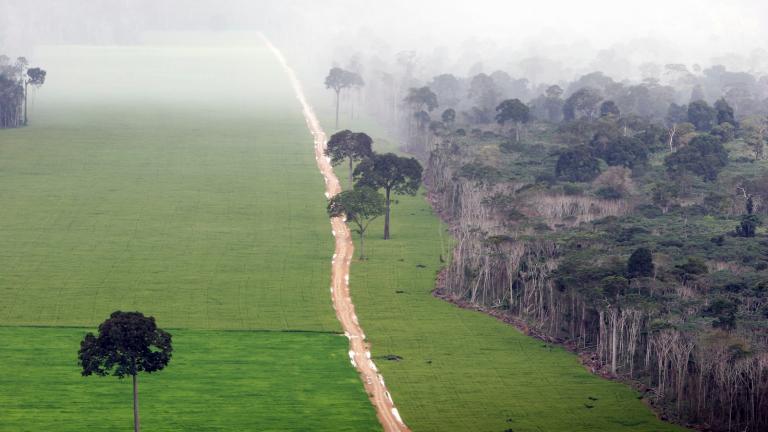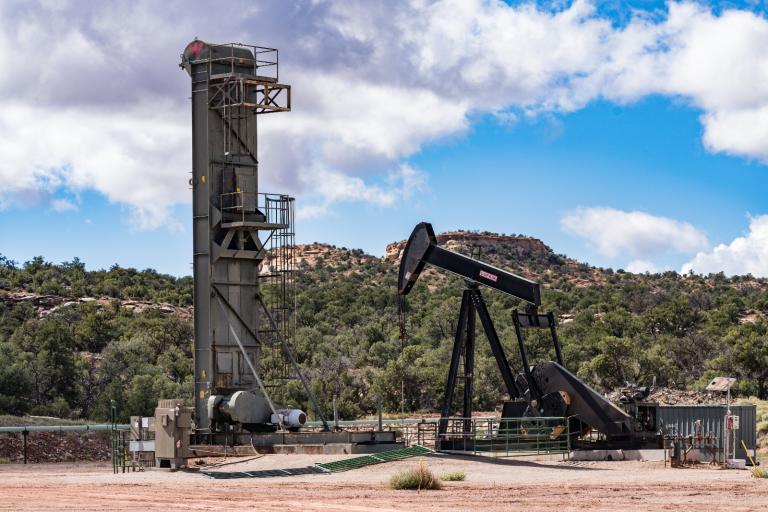Plunked down in the land of huge, chemical-addicted grain farms and the nation’s greatest concentration of hog feedlots, Iowa State University’s Leopold Center for Sustainable Agriculture has always had a tough row to hoe.
Imagine trying to operate an Anti-Cronyism League from Bush’s West Wing, and you get an idea of what the Leopold Center is up against. Industrial agriculture runs the show in Iowa, sustained by regular infusions of federal cash and its government-sanctioned ability to “externalize” the messes it creates. The state grabbed $12.5 billion in federal agriculture subsidies between 1995 and 2004 — second only to Bush’s own home state. Iowa leads all states in hog production: It churned out 14.5 million pigs in 2001 alone, the vast majority from stuffed, environmentally and socially ruinous CAFOs (confined-animal feeding operations).
Yet since springing to life in 1987 by fiat of the Iowa legislature — funded ingeniously by state taxes on nitrogen fertilizer and pesticide — the Leopold Center has become an invaluable national resource for critics of industrial agriculture and seekers of new alternatives.
Now, however, a sudden purge at the top has called the Center’s much-prized independence from industrial agriculture into question.
The Leopold Center operates under the authority of Iowa State University’s College of Agriculture. Last Friday, the college issued a press release announcing that the Leopold Center’s director of five years, Fred Kirschenmann, had “accepted a new leadership role as a distinguished fellow of the center.”
The college went on to state that it had named an interim director, effective Nov. 1.
Kirschenmann himself, however, tells a more interesting tale than what’s contained in the press release’s bland prose. He says his move from director to “distinguished fellow” came suddenly and without his own input.
“On Wednesday [Oct. 26] I received a letter from the interim dean asking me to resign by Friday and decide by then if I would accept the position of distinguished fellow at the center,” Kirschenmann told me yesterday.
“I wrote her [the interim dean] back telling her I thought she was moving too fast, that there wouldn’t be time for a smooth transition. She wrote back that it was a done deal — she had already named a new director.”
Kirschenmann says the interim dean, Wendy Wintersteen, had been on Leopold’s advisory board for years and had served on the search committee that hired him in 2000. “She was always very supportive of what we were doing,” Kirschenmann says. “Until about two years ago. Then she became very critical.”
Her critique centered on the idea that in its work the Leopold Center was neglecting “key stakeholders,” Kirschenmann adds. “But she never really clarified who those stakeholders were.”
Might she have been refering to agribusiness interests? “You can draw your own conclusions,” Kirschenmann says. She never cited any reason for the de facto purge, save for “some verbiage about how I would be free to pursue my own work without having to worry about administrative duties.”
To be sure, Iowa State’s College of Agriculture draws agribusiness cash the way a penned-up pig wallowing in its own waste draws flies. I have a call into the college for a list of corporate donors; until that call is returned, let it suffice that this is the sort of research the college commonly proffers: A study claiming to show that the genetically modified seed industry deserves a greater “level of intellectual property protection … than what existed in the North American seed corn market in the late 1990s.” Collaborators: a pair of scientists from GM seed titan Pioneer Hi-Bred International Inc., a subsidiary of DuPont.
Here are glowing testimonials from two of the college’s “partners”: John Deere and Cargill.
Kirschenmann says he accepted the “distinguished fellow” position because Wintersteen assured him he could continue doing his own work on sustainable agriculture. And that work is important. Under Kirschenmann the Leopold Center bluntly criticized and rigorously documented the environmental and social calamities being wrought by industrial agriculture.
Will he continue to be able to do that work at Leopold? “We’ll see how it goes,” he told me.
In the meantime, I’ll be doing some research about which corporations and commodity groups give what to Iowa State’s College of Agriculture.
 Plunked down in the land of huge, chemical-addicted grain farms and the nation's greatest concentration of hog feedlots, Iowa State University's
Plunked down in the land of huge, chemical-addicted grain farms and the nation's greatest concentration of hog feedlots, Iowa State University's 

